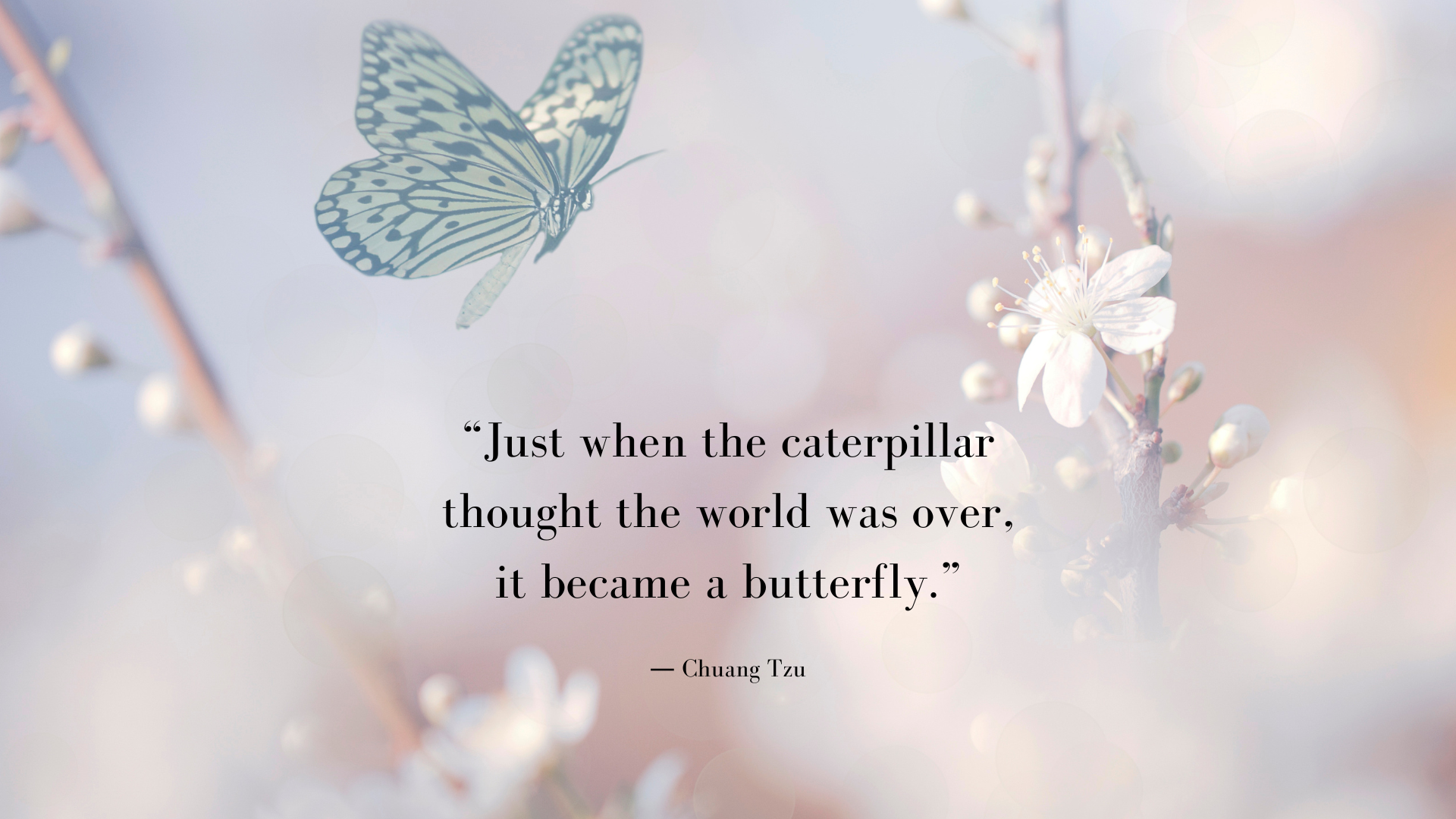5 Ways to Find Your Purpose
Oct 06, 2022
Today, let's discuss what it means to embrace your purposeful life, the benefits of having a purpose, and how to go about finding yours. I've also prepared a downloadable worksheet to help you find your life purpose so you can live a fulfilling and satisfying life.
What is life purpose?
Your purpose can fuel and increase your optimism, resiliency and hope. It makes you want to pursue things of interest and keeps you going in difficult times (only when you're deeply connected to your purpose).
Generally, your life purpose is made up of your motivations. Think about the things you do that make your heart sings or what made you jump out of bed every morning feeling excited over what's upcoming.
Guided by meaningful values and goals, your purpose is to believe that what you do makes a difference. It need not be life-changing deeds and can be as simple as contributing to the well-being of your loved ones because they matter to you. It can be anything you deeply treasure, value and hold close to your heart.
Why is having a sense of purpose important?
Having a clear idea of your purpose in life is an important factor for happiness, fulfilment and contentment. Living a meaningful and purposeful life can improve physical and mental health. Research has shown that knowing your purpose and living in accordance releases positive emotional energy, which could lead to happiness.

Applied Psychology published a study in 2010 found that individuals who have a deep sense of purpose, along with a sense of control and finding what they do worthwhile, tend to live longer.
Research also linked people living a purposeful life to getting better sleep, reducing heart issues and strokes, and a lower risk of dementia. Other than improved health, Journal of Research and Personality conducted a study in 2016 found that individuals who feel a sense of purpose make more money than those who do not find their work meaningful and purposeful.
While it may be challenging to gain clarity on your purpose, let alone attain a purposeful and meaningful life that is driven by your values. If you're feeling lost and unmotivated and you would like to establish your purpose to unlock and start living your best, this blog post will show you how.
1. Finding your purpose in life through uncovering what's meaningful to you.
Meaning and purpose are closely related, but they're not exactly the same. Meaning is the emotional supercharge behind your purpose. It makes you jump out of bed in the morning and kickstart your day with joy and meaning that makes sense only to you. It is why you do things you do, aspire toward important goals, and extract pure pleasure from your routine activities.
Meaning fuels motivation, and motivation is the driving force behind your actions. Purpose, on the other hand, is all about meaningful action. Life purpose is defined as having well-defined goals that provide direction for your life (Hill et al., 2010). A life full of purpose and meaning is a hopeful, exciting, and fulfilling life.
So, what goals do you find meaningful and worthwhile the time and effort to pursue? This question may be challenging for some who haven't paid much attention or taken the time to reflect on their meaningful goals.
One way to start is by exploring your interests. Is there a topic you enjoy discussing with others and on your social media? Think about the IG or tweeter posts that trigger and engage you over and over again. How about the headlines that always capture your attention? Is it about climate change or human rights? Or perhaps hobbies such as gardening or cooking? Do you enjoy discussing history or personal wealth management? Or do you prefer sharing the latest money-saving tips you discovered?

2. Discover your strengths and passions and live with joy.
Your strengths, passions and the things you find joy doing are good indicators of your life purpose. Unsure of your strengths and passions, ask the people who know you best. Likely, you're already pursuing them in ways you don't even know.
Finding your purpose helps you make better decisions, steers your behaviour, initiates goals, and gives a sense of direction and hope. Your childhood could also provide clues.
Credited as the father of Positive Psychology, Martin Seligman scientifically explored human potential. He framed it this way: "What activities were you already doing as a child that you still like to do now?"
The question is less about what you loved or enjoyed the most but the activities that managed to stay in your life, despite it being challenging. They take time and effort, yet you find yourself returning to them and not giving up.
So, what are your passions and your strengths?
3. Uncover the true you by paying attention to people who inspire you.
Who are the positive people around you? Who inspires you, and how are they inspiring you? What is it about them that attracts you to them?
Spend time with inspiring people and allow their positive vibes to rub off on you. You're likely to share the same mindset with these positive and purpose-driven people when you spend time with them. Surrounding yourself with people who make meaningful changes, you may discover your purpose through them.
For the same reason, hanging out with people with a negative mindset can be challenging to create and experience positive changes in your life. Individuals with negative attitudes (unintentionally and unconsciously) may pull you away when they're not interested in making meaningful contributions and positive changes, making it difficult to feel passionate and purposeful progressions.

So, who's inspiring you? What is it about them that inspires you?
4. Understand there is no purpose without growth.
"We delight in the beauty of the butterfly, but rarely admit the changes it has gone through to achieve that beauty." — Maya Angelou
The butterfly builds its beauty and strength through the struggle of transformation. In the caterpillar stage, she breaks her body apart to escape the cocoon that has become too small for her. The butterfly-in-the-making must go through a process of struggle that frees her body using its brand new wings. The struggle is so intense that she may appear dying. But she needs to do it herself and experience the transformation that promises her a new lease of life and a pair of beautiful wings if she pulls through it.
Apparently, struggle strengthens her wings. A well-meaning human giving her a hand during the struggling process will impede her growth, thereby weakening her wings and causing deformation.
Struggle fosters growth resulting in strength and beauty, much needed for a caterpillar to transform into a stunning butterfly.

Your own metamorphosis may occasionally seem like almost dying. Discovering your passion through struggle is uncomfortable and painful because it often pushes you out of your comfort zone. But navigating your way out of your struggle using healthy techniques is often deeply rewarding.
I believe that are great lessons when you lean into the discomfort experienced during difficult times and turn your pain into purpose. Experiencing pain and struggles is inevitable in life. We develop our unique strengths and perspectives by overcoming these challenges that shape who we become. Honour your struggle. Think of the most difficult time in your life. What can you do to turn your adversity into strength? You may find your purpose in helping others facing similar struggles.
5. Get in touch with your inner self.
While looking up at what others do for inspiration is a powerful motivating force, following blindly in others' footsteps may be counterproductive.
Imagine not being influenced by social indicators of accomplishment, happiness, and fulfilment. Does your outer life reflect your inner values?
Visualize your life as a blank book and start writing a new one by using your personal values as signposts. Just to let you know, I'll be discussing how you can find your value in the next few weeks. If you're interested in finding your values, please stay tuned to my upcoming blog posts.
Let's introspect your inner self using the Japanese concept of Ikigai (ee-key-guy) which means your 'reason for being'. The terms iki, meaning 'alive or 'life,' and gai, meaning 'benefit' or 'worth.' Your ikigai is your life purpose or your bliss.
While your life purpose can be but is not always linked to doing meaningful work for a paycheck. But if making money from what you love is your dream, then finding your ikigai is how you can bring that dream to life.
To find your ikigai, you need to dig into four questions:
- What do I love doing?
- What am I good at?
- What does the world need?
- What can bring me financial abundance?

Ikigai helps you learn about yourself and how to lean into your strengths, follow your heart, and create the career of your passion. It is what you need to kickstart a career that is purposefully and meaningful, and live a fulfilling and joyful life.
Finding your purpose does not have to be years of self-reflection and examination. You don't need to waste a huge chunk of your life to find your purpose and become so trapped in searching for your purpose that you actually forget to live! Carpe diem.
You're brilliant and talented. What you lack is a framework to help you gain clarity on your purpose, and now, you have one. You may thank me later for this.
Have you downloaded the free worksheets to help you discover your purpose? You may click here to get the free download.
With gratitude,

The content of this website is not meant to substitute any advice provided by medical professionals. If you suspect that you're facing mental-health related problems, you're strongly encouraged to seek professional help.
References:
Steptoe, A. and Fancourt, D. "Leading a meaningful life at older ages and its relationship with social engagement, prosperity, health, biology, and time use." PNAS, January 22, 2019 116 (4) 1207-1212.
Kobau, R, Sniezek, J, Zack, M M, Lucas, RE, Burns, A. Well‐Being Assessment: An Evaluation of Well‐Being Scales for Public Health and Population Estimates of Well‐Being among US Adults. Applied Psychology: 2010: 2: 272-297. doi.org/10.1111/j.1758-0854.2010.01035.x
Musich S, Wang SS, Kraemer S, Hawkins K, Wicker E. Purpose in Life and Positive Health Outcomes Among Older Adults. Popul Health Manag. 2018;21(2):139–147. doi:10.1089/pop.2017.0063
Baumeister RF, Vohs KD, Aaker JL, Garbinsky EN. Some key differences between a happy life and a meaningful life. Journal of Positive Psychology 2013;8(6):505-516. https://doi.org/10.1080/17439760.2013.830764
Hill PL, Turiano NA, Mroczek DK, Burrow AL. The value of a purposeful life: Sense of purpose predicts greater income and net worth. Journal of Research in Personality. 2016:65:38-42. doi:10.1016/j.jrp.2016.07.003.
Hill, PL, Burrow, AL, Brandenberger, JW, Lapsley, DK, & Quaranto, JC (2010). Collegiate purpose orientations and well-being in early and middle adulthood. Journal of Applied Developmental Psychology, 31(2), 173-179.
Hatwalne, M. (July 24, 2020). Ikigai – Reason for being. Retrieved November 2, 2020, from https://myzenpath.com/purpose-meaning/ikigai-reason-for-being/
Mogi, K. (2018). Awakening Your Ikigai: How the Japanese wake up to joy and purpose every day. The Experiment.





